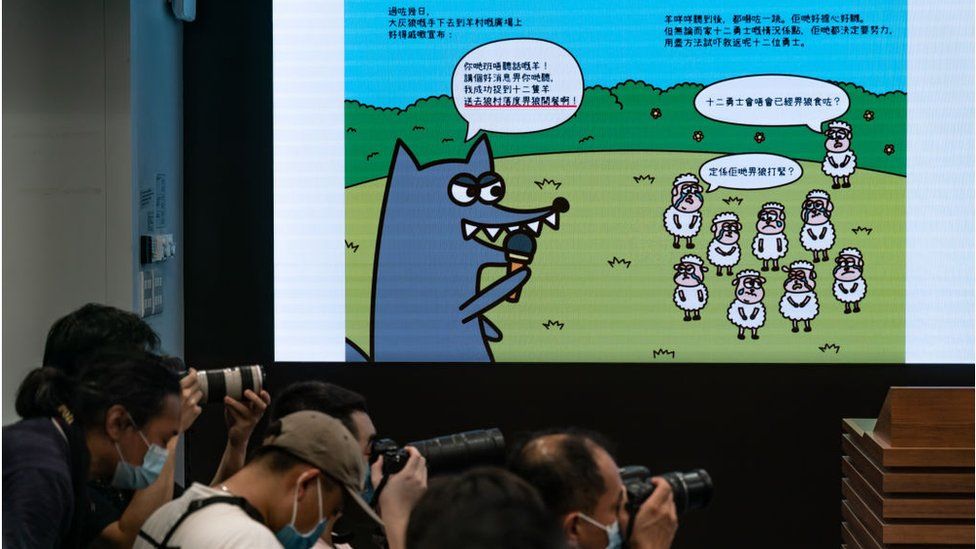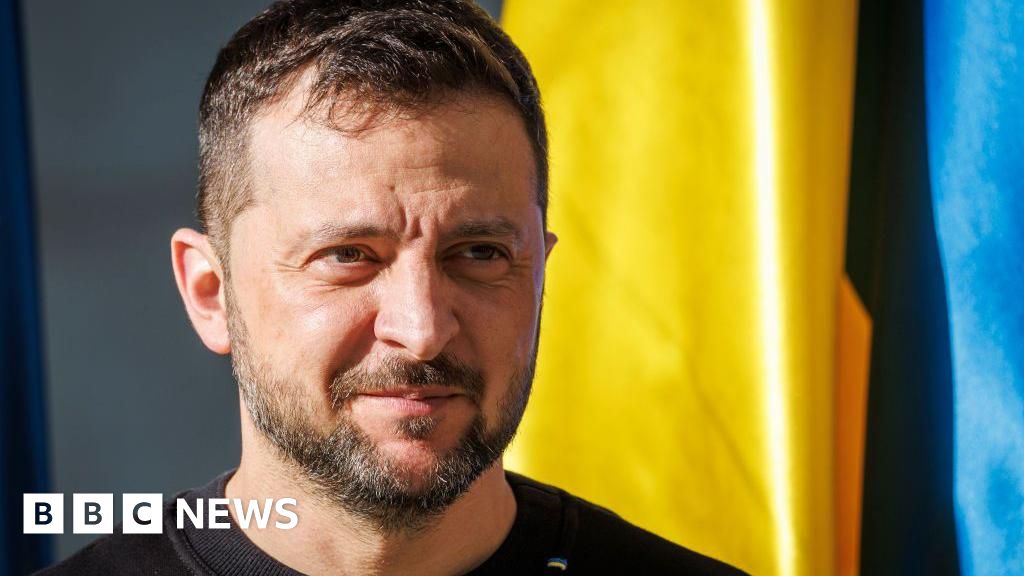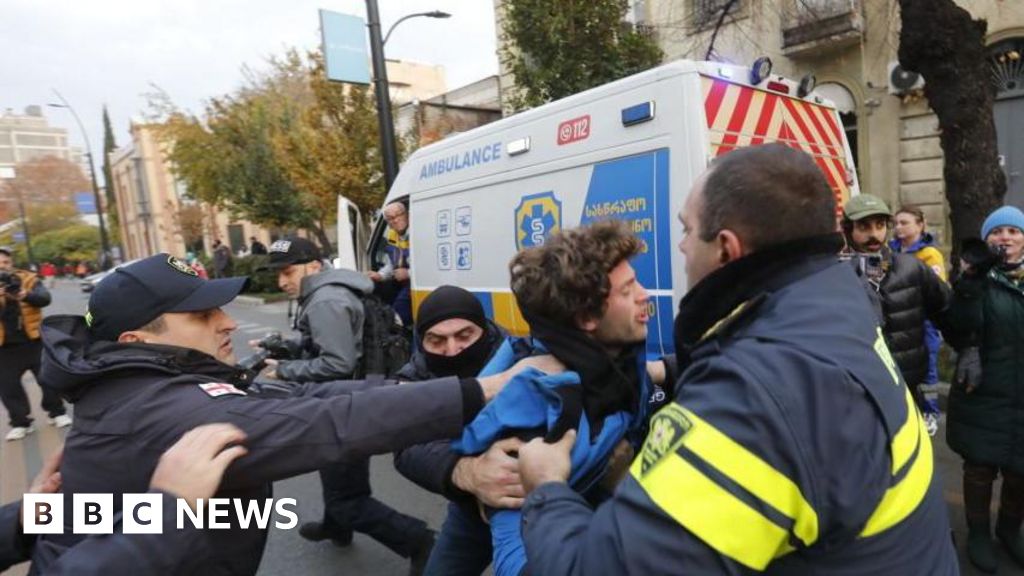ARTICLE AD BOX
 Image source, Getty Images
Image source, Getty Images
Hong Kong police displayed content from one of the children's books at a press conference in July
Five speech therapists in Hong Kong have been jailed for 19 months each after being found guilty of publishing "seditious" children's books.
Authorities interpreted the books - about sheep trying to hold back wolves from their village - as referring to Hong Kong and the Beijing government.
The authors argued the books chronicled "history from the people's perspective".
But a government-picked judge concluded they were "a brainwashing exercise".
The sentencing comes amid a crackdown on civil liberties since 2020, when China imposed a new national security law.
Beijing said the law was needed to bring stability to the city - but critics said it was designed to squash dissent, and weaken Hong Kong's autonomy.
Hong Kong is a Special Administrative Region of China, and has a "one country, two systems" principle, which is designed to give the city certain freedoms.
The five speech therapists - Lai Man-ling, Melody Yeung, Sidney Ng, Samuel Chan and Fong Tsz-ho - have already spent more than a year in jail awaiting the verdict.
One of their lawyers said they could be released within a month, because of the time already served.
The group, who are aged between 25 and 28, produced cartoon e-books that some interpreted as trying to explain Hong Kong's pro-democracy movement to children.
In one of the three books, a village of sheep fight back against a group of wolves who are trying to take over their settlement.
On Saturday the five speech therapists maintained the books were meant to help children understand systemic injustice.
But Judge Kwok Wai-kin accused the speech therapists of "sowing the "seed of instability" in the city and across China.
They were charged under a colonial-era sedition law - which until recently had been rarely used by prosecutors - rather than the 2020 national security law.
You might also be interested in:
How China is silencing criticism in Hong Kong

 2 years ago
21
2 years ago
21








 English (US)
English (US)